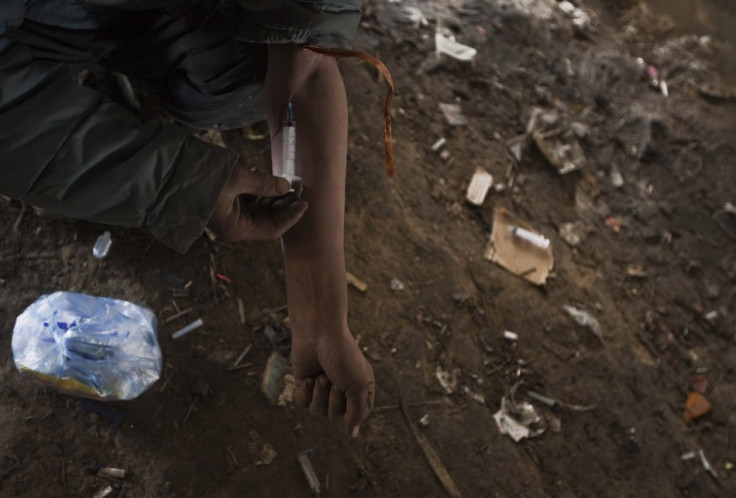Drug Addiction in Afghanistan: A Problem with No End in Sight

More and more people are becoming addicted to drugs in Afghanistan, a problem that affects men, women and children.
Despite producing more than 90 percent of the world's opium, the country has few health facilities set up to help addicted Afghans overcome their addictions.
While drug problems have ravaged Afghanistan for decades, there has been a rise in the production of opium over the last 10 years - the main ingredient in heroin - from 185 tons in 2001 to 5,800 tons by 2011.
Hundreds of thousands of Afghans have turned to drugs to escape the twin miseries of poverty and war. The practice is pervasive, affecting men, women and children.
With many living in precarious conditions and with little money to survive, the cultivation of opium poppies is a profitable undertaking that provides a steady income.
This, in turn, encourages corruption and helps finance insurgents, especially in the south of the country where the Taliban controls many poppy fields as well as smuggling routes. Nearly 80 percent of the opium grown in Afghanistan is produced in the south.
"During the internal conflicts in Afghanistan, we had economic problems and we were induced into using opium by our neighbours, in order to help reduce the suffering and pain of war, that's why we're addicted to opium," drug addict Shaperai Jan told Reuters.
In addition to there being few drug rehabilitation facilities in Afghanistan, the treatment available to addicts is basic and it is even more difficult for women to access medical care in this ultra-conservative Muslim country.
The United Nations-funded Nejat drug rehabilitation centre in Kabul estimates that there are around 60,000 Afghan women who regularly take illegal drugs.
In some cases, Afghan refugees return with addictions from places like Iran, which has the second highest heroin abuse rate in the world, according to the UN.
"My husband was addicted to drugs in Iran. When he returned to Afghanistan, he was smoking inside the room in front of us and my children and I became addicted. We had to use drugs, otherwise we would feel pain in our bodies and only the use of drugs could reduce the pain," a woman explained to Reuters.
With many addicts sharing needles, medics are concerned about the spread of HIV and Aids, but preventive measures and HIV testing are frequently opposed by conservative forces in the country.
In a report published in February, the Institute for War and Peace Reporting highlighted the use of children as drug mules who are sent to Iran.
Some of the children are told to swallow capsules filled with heroin, which can burst and cause death.
Smugglers often tell them that the more capsules they swallow, the more money they will get.
In most cases, however, the children receive little cash in return for their efforts and can be abused by the smugglers.
Families can also be coerced into giving their children away to repay debts to local drug lords.
© Copyright IBTimes 2025. All rights reserved.





















